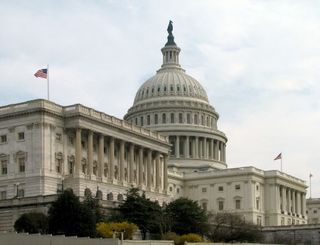House Dems: Bad FCC Reg Rollback Tied to Bad Data

Leading House Energy & Commerce Committee Democrats are looking to tie what they say was the FCC's faulty broadband deployment data to what they say was its vote to "eviscerate" network neutrality.
Related: Why Rural America is Still Not Connected
That came in a letter to FCC chair Ajit Pai Tuesday (May 8) from Reps. Frank Pallone (D-N.J.) and Mike Doyle (D-Pa.), ranking members of the full committee and Communications Subcommittee, respectively.
They had already expressed concerns about the data in comments in the net neutrality docket, but followed up this week citing the FCC's recently unveiled broadband map, which they said "wildly misrepresents the availability of broadband to Americans across the country and demonstrates that the Commission has failed to respond to the bipartisan, bicameral calls for accurate data."
They said they were worried that the "unrepresentative data" was used "as the basis of the Commission's decision to undo consumers' net neutrality protections." Both legislators opposed the Pai FCC's elimination of rules against blocking, throttling and paid prioritization.
Under Sec. 706 of the Telecommunications Act, the FCC has to conduct an annual assessment of the availability for advanced communications to all Americans and, if it concludes that is not being done in a reasonable and timely manner, can regulate to make it so.
The legislators say that the FCC needs to make policy choices, like rolling back net neutrality regs, based on accurate broadband info. They say the FCC maps overstate broadband coverage, "creating a perception that competition is more robust than it is."
Broadcasting & Cable Newsletter
The smarter way to stay on top of broadcasting and cable industry. Sign up below
But that argument could be a double-edged sword.
One of Pai's arguments for the need for rolling back the rules -- in place since 2015 -- was that they had depressed investment in boosting broadband coverage, so if coverage was even less than the FCC thought, that could buttress that case. But overstated deployment could also mean less competition where the FCC says it exists. The option to switch ISPs if one chooses to block or throttle or paid prioritize was one of the arguments Pai made for being able to roll back the regs.
Pallone and Doyle want Pai to answer the following questions by May 29:
- "Did the Commission rely on erroneous 'facts' gleaned from faulty form 477 data to support its reasoning in the Restoring Internet Freedom proceeding that ultimately rolled back net neutrality? Please provide a yes or no answer and a brief explanation.
- "If the Commission did use the data from its Form 477 in the Restoring Internet Freedom proceeding, how did the Commission confirm the accuracy of the data? Please provide any technical analysis performed by Commission staff to ensure that that its data was accurate.
- "If the Commission did not use the Form 477 data to make its final determination to eliminate net neutrality protections, on which data was its decision based?
- "If the Commission did not use the Form 477 data to support its findings in the Restoring Internet Freedom Order, why has the Commission deemed these data sufficient for other Commission purposes, such as for use in making decisions on how to deploy funding from the Universal Service Fund, but not a sufficient basis for supporting its decision to reverse net neutrality protections? Please explain."
Contributing editor John Eggerton has been an editor and/or writer on media regulation, legislation and policy for over four decades, including covering the FCC, FTC, Congress, the major media trade associations, and the federal courts. In addition to Multichannel News and Broadcasting + Cable, his work has appeared in Radio World, TV Technology, TV Fax, This Week in Consumer Electronics, Variety and the Encyclopedia Britannica.

